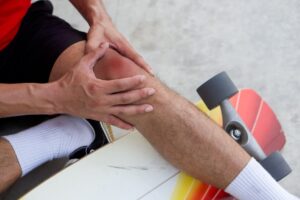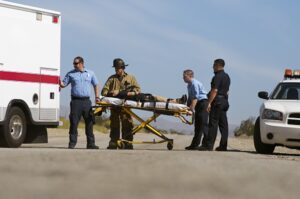Notice: Thank you for visiting our informational page regarding Benicar claims. At this time we are no longer accepting cases regarding Benicar cases. However, if you feel that you have any questions about other defective medical devices, dangerous drugs, recalls, or any additional legal concerns that we may help you with, please call us or fill out the evaluation form.
If you have high blood pressure your doctor may have prescribed you Benicar. Benicar (generic name olmesartan medoxomil) works as indicated for many people and can help lower blood pressure. But some patients experience highly dangerous gastrointestinal symptoms, which can lead to malnutrition, long term damage, or even death. Many Benicar patients were not warned of this risk.
If you’ve been harmed by taking Benicar, you should speak to a lawyer. John Foy & Associates is one of the most respected medical injury law firms in the country. We understand Benicar cases and we believe in patients’ rights. Let us help you decide whether you have a case. Call us at 404-400-4000 and get a free consultation today.
What Is Benicar/Olmesartan?
Benicar is a blood pressure medicine made by the pharmaceutical company Daiichi Sankyo. It works by blocking hormones in your body called angiotensin receptors. One of these receptors, Angiotensin II, is the hormone that makes your blood vessels constrict. By blocking it, Benicar keeps the blood vessels dilated, allowing more blood to run through them. This lowers your blood pressure.
Benicar isn’t the only blood pressure drug that blocks angiotensin receptors. However, it stands out from other drugs in its class because it’s the only one associated with severe gastrointestinal problems—including a condition so serious it can cause starvation.
Get the strong arm
What Problems does Benicar Cause?
Benicar is now known to be associated with a rare condition called sprue-like enteropathy. Sprue-like enteropathy is a severe intestinal problem that resembles celiac disease (“sprue-like”) but is actually completely unrelated. If you develop sprue-like enteropathy, your body stops taking nutrients from the food you eat. You slowly starve to death—even if you have plenty of food.
Patients given Benicar were not warned of this horrific condition. Many had no idea what was causing their gastrointestinal problems and other symptoms. This led to patients being misdiagnosed as having celiac disease, also known as being gluten intolerant. But the treatment for celiac disease does nothing to help with sprue-like enteropathy. Patients continued to waste away even while getting “treatment.”
Benicar’s manufacturer, Daiichi Sankyo, did nothing to shed light on the cause of the problems. Instead, it was a physician who made the connection. In a now-famous Mayo Clinic study, Dr. Joseph Murray brought together 22 patients who were taking Benicar for blood pressure. Each of these patients was suffering from similar gastrointestinal symptoms, and all had been diagnosed with celiac disease.
But Murray ruled out celiac disease based on two criteria:
- None of the patients improved with a gluten free diet, which is the standard treatment for celiac disease
- The patients tested negative for celiac disease through blood tests
Instead, Murray asked the patients to discontinue taking Benicar. The results were unusual for a clinical study: all 22 patients immediately improved. The results of this study were sent to the FDA and have shaped the way Benicar is used today.
How Serious Is Sprue-Like Enteropathy? Can You Die from It?
Sprue-like enteropathy is a very serious condition. It shuts down your body’s ability to take in nutrition. This leads to symptoms including:
- Gastrointestinal distress
- Chronic diarrhea
- Malnutrition
- Dangerous weight loss
- Weakness and fatigue
As Dr. Murray’s study indicated, the sprue-like enteropathy may abate if you stop taking Benicar. But it can also have long lasting effects. In analyzing how Benicar causes the condition, it’s been suggested that it actually triggers an autoimmune response, where the body is fighting itself. In particular, it’s known that blocking angiotensin receptors can also limit a hormone known as TGF-beta. TGF-beta is crucial to the body’s ability to regulate immune systems in the intestine. If TGF-beta is blocked, it might cause the body to attack its own intestine cells, which could cause sprue-like enteropathy.
This is serious, because damage to the intestine could last long after a patient stops taking Benicar. Cellular damage in the intestines can take years to recover or in some cases may never fully recover.
Untreated, the effects of sprue-like enteropathy can be even worse. 14 of Dr. Murray’s 22 patients had been hospitalized for their symptoms, and over time the condition can be fatal. Benicar is associated with at least one wrongful death case.
Has Benicar Been Recalled?
No, Benicar has not been recalled at this time. But the FDA has now recommended a label change for the drug. The new labeling will alert doctors and patients to the possibility of sprue-like enteropathy. This closes a crucial hole in safety warnings for Benicar, as patients who came down with the condition previously had no information to work with and were often misdiagnosed.
Unfortunately, the new warnings do nothing to help those who have already suffered, or even died, in the years that Benicar was prescribed with no warning.
Is Daiichi Sankyo Liable for Problems Caused By Benicar?
Yes. Under US law, the makers of a drug are liable for harm that it causes if patients were not adequately warned of the risk. It’s not clear at this time how much Daiichi Sankyo knew about the gastrointestinal risks that Benicar poses. But the company was required to perform multiple rounds of safety testing both before and after the drug was approved. To use a legal term, the company “knew or should have known” the risk of intestinal problems. It was through Daiichi Sankyo’s negligence that patients have been harmed.
If you or someone you love has been harmed by Benicar/olmesartan, you are not alone. Over 1,000 lawsuits have been brought forward by Benicar patients and their families.
The law gives you the right to a financial recovery that can pay for your hospital bills, medical treatment, ongoing care, lost work time, and anguish, among other costs. But you must act quickly—every state has its own statute of limitations, and if you wait too long your legal options may disappear.
Let us help you. At John Foy & Associates we have decades of experience taking on big pharmaceutical companies. We offer a FREE consultation and we charge nothing unless we get you a financial recovery. Call 404-400-4000 and get your free consultation today.
(404) 400-4000 or complete a Free Case Evaluation form





